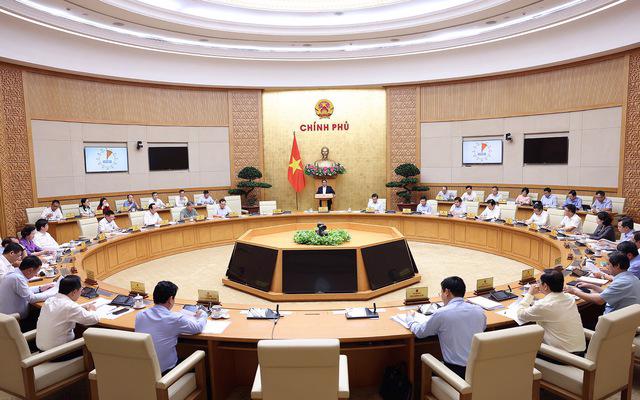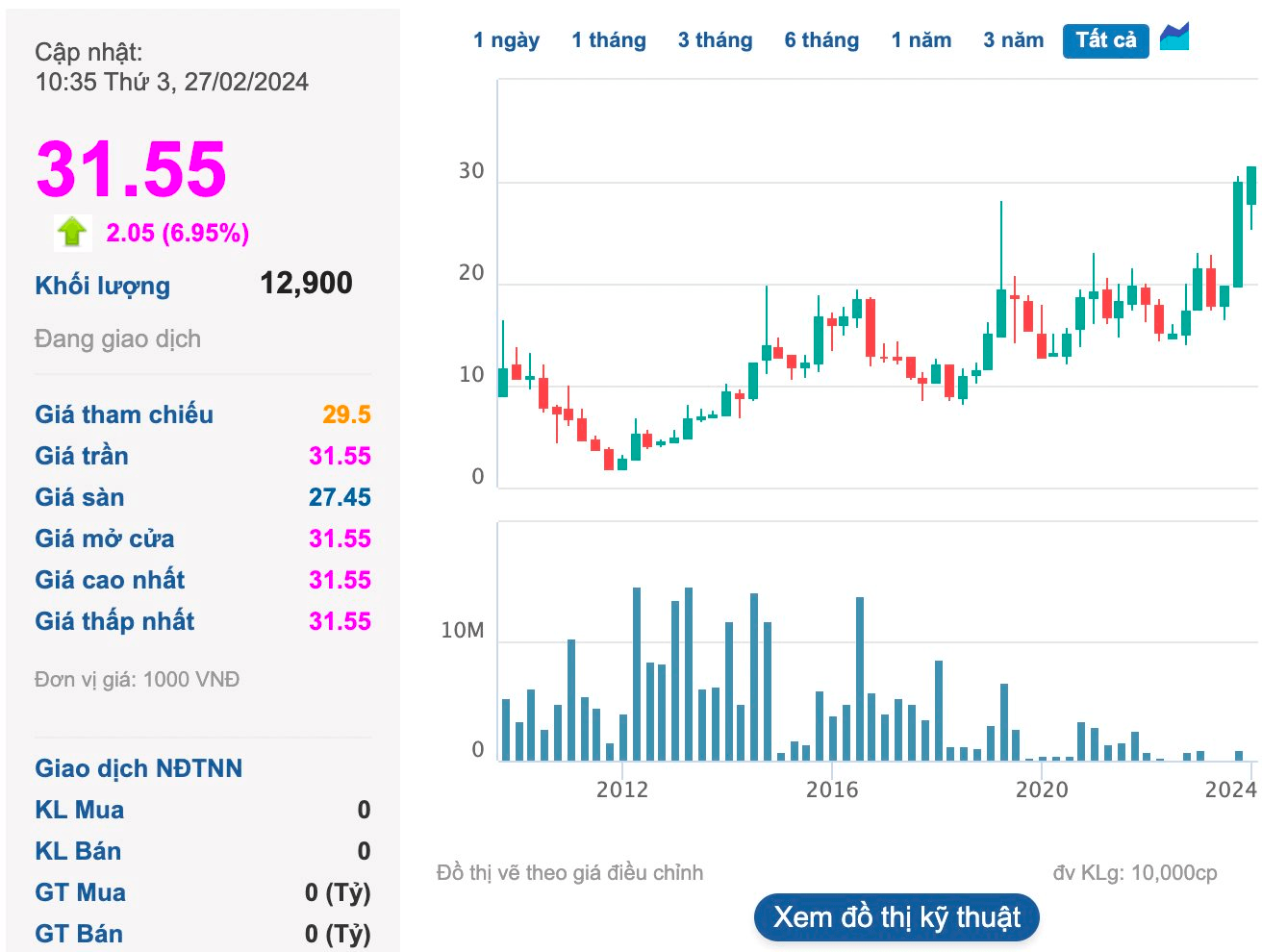On the morning of May 4, at the Government Headquarters, Prime Minister Pham Minh Chinh chaired the regular Government meeting for April 2024, discussing several important matters.
The meeting concluded that the socio-economic situation in April continued to show positive changes and was generally better than in March and the first quarter of the year.
NOTABLE ACHIEVEMENTS
The economy maintained its positive growth momentum in all three sectors: agriculture, industry, and services. Macroeconomic stability was sustained, with inflation controlled and key balances ensured. Development investment continued to yield positive results, driving economic growth. Business development remained on a positive trajectory. Cultural and social sectors received due attention. Administrative reforms were accelerated, particularly in streamlining and simplifying administrative procedures. Anti-corruption efforts were intensified, contributing to strengthening public trust.
Political and social stability was maintained, with national defense and security safeguarded. Social order and safety were ensured, and international relations and integration were enhanced, elevating the country’s prestige and position.
Numerous international organizations and experts continued to highly regard Vietnam’s economic performance and prospects. The Asian Development Bank (ADB) projected Vietnam’s economic growth for 2024 at 6%. HSBC predicted 6.3%, while Standard Chartered forecasted 6.7%. Vietnam’s business environment ranking climbed 12 places. The Global Innovation Index ranked Vietnam 46th out of 132 countries, a rise of two places. The Happiness Index ranked Vietnam 54th, an improvement of 11 places compared to 2023.
After listening to the opinions expressed, Prime Minister Pham Minh Chinh concluded the meeting by highlighting the achievements, shortcomings, and challenges. He attributed the positive outcomes to the close leadership and guidance of the Central Committee, the Politburo, and the Secretariat, led by General Secretary Nguyen Phu Trong; the collaboration and coordination of the National Assembly and other entities within the political system; the participation and support of the people and businesses; and the cooperation and assistance of international friends. He particularly emphasized the decisive and focused involvement of the Government, ministries, sectors, and local authorities.
Regarding the limitations and shortcomings, the Prime Minister identified both objective and subjective factors. He pointed out that the implementation of laws and policies remained a weak link, and self-reliance in some agencies and units needed improvement. Additionally, the capacity and sense of responsibility among a section of officials and civil servants fell short of expectations, and there were challenges in the delegation of authority in certain areas. He also mentioned instances of avoidance, passing of responsibilities, and a lack of proactiveness among some officials, underscoring the need to strengthen the role of leaders.
The Prime Minister also emphasized key orientations for direction and administration in the coming time.
First, closely follow and review the implementation of the resolutions of the 13th National Party Congress and the directives and instructions of the Central Committee, the Politburo, the National Assembly, and the Government.
Second, resolutely face difficulties head-on, turning pressure into motivation. Transform the impossible into possible, and turn challenges into opportunities. Focus on removing obstacles to promote production and business activities, creating jobs and livelihoods for the people.
Third, closely monitor domestic and international developments; enhance capacity for analysis and forecasting; and ensure timely and effective policy responses. Promote decentralization and delegation of authority, along with resource allocation and improved implementation capacity, coupled with strengthened inspection, supervision, and monitoring.
Fourth, strengthen unity and discipline, and maintain administrative discipline. Promptly address bottlenecks and difficulties, taking proactive measures within the scope of authority and making timely proposals for issues beyond authority.
Fifth, in all circumstances, ensure political and social stability, and consolidate national defense and security, maintaining a peaceful and stable environment for cooperation and development.
15 MAIN TASKS AND SOLUTIONS
Along with specific tasks assigned to ministries, sectors, and local authorities, the Prime Minister requested coordination with relevant agencies to prepare for the upcoming Central Committee Conference and the 7th session of the National Assembly. He outlined 15 main tasks and solutions for the coming period.

First, regarding macroeconomic management, the Prime Minister instructed the continued proactive, flexible, timely, and effective implementation of monetary policies, in coordination with fiscal policies. He emphasized avoiding abrupt changes in monetary policy and the need for a more proactive fiscal policy. He also mentioned the importance of using tools flexibly and promoting digital transformation, increasing revenue, and saving expenses. He highlighted the successful application of electronic invoices in the retail gasoline system and instructed the early submission of policies on tax exemption, reduction, and extension to support businesses and people in May.
He also mentioned the healthy and effective development of the stock market, corporate bond market, real estate market, and gold market, along with strict handling of violations. Emphasizing the management of prices and the market, he suggested a suitable roadmap for adjusting prices of commodities managed by the State and public services.
Second, continue to renew traditional growth drivers (investment, export, and consumption) and promote new growth drivers.
Third, accelerate the disbursement of public investment capital and the three national target programs, considering this a key political task for ministries, sectors, and local authorities. Continue the effective operations of the five working groups of the Prime Minister; strive for a minimum disbursement rate of 95% for public investment capital in 2024; and allocate the remaining 33 trillion VND of the 2024 investment plan.
Fourth, focus on perfecting institutions and laws and reforming administrative procedures, while promoting national digital transformation. Expedite the completion and submission to the Government of the Decree amending and supplementing Decree 40 guiding the Law on Public Investment; and the Scheme for Human Resource Development for the Semiconductor Industry for 2024-2030…
Fifth, concentrate on developing key sectors and fields (industry, agriculture, tourism, and services).
In terms of industry, promote the restructuring of industrial production towards modernization; address difficulties and promote the development of processing and manufacturing industries and supporting industries; and accelerate the progress of large-scale, high-tech projects with strong spillover effects. The Prime Minister particularly emphasized ensuring sufficient electricity and fuel supply in all situations, effectively implementing Power Development Plan VIII, and expediting the progress of ongoing projects to put them into operation soon.
He also instructed the urgent completion and issuance of the Decree on direct power purchase and sale between electricity producers and large power consumers; policies to encourage the development of rooftop solar power installed at residential houses, offices, and industrial parks for self-consumption; and policies to develop offshore and near-shore wind and gas power.
Regarding agriculture, promote sustainable production following value chains; take advantage of opportunities for agricultural exports; pay attention to removing the “yellow card” for illegal, unreported, and unregulated (IUU) fishing; proactively plan for water regulation to ensure sufficient water for agricultural production, electricity generation, and people’s daily use; and effectively implement forest fire prevention with the motto “four on-sites.”
Sixth, pay attention to cultural, social, and environmental fields, ensuring social security and improving people’s lives, with a determination to not let anyone go hungry.
Seventh, promote innovation and creativity and apply science and technology in management and administration. Each ministry, sector, and locality should have a digital transformation project like the Ministry of Public Security, connecting with Scheme 06.
Eighth, strengthen the management of emerging commodities such as gold and ensure the supply of medicines for the people.
Ninth, carefully prepare and report to competent authorities for the implementation of the new salary reform from July 1, 2024, ensuring fairness, comprehensiveness, and uniformity.
Tenth, strengthen national defense and security capabilities; ensure security and order, and prevent and combat crimes. Especially, well prepare for the 70th anniversary of the historic Dien Bien Phu Victory.
Eleventh, thoroughly and effectively implement the foreign affairs activities of high-ranking leaders.
Twelfth, strengthen information and communication work to create social consensus.
Thirteenth, actively implement the tasks of the Socio-Economic Subcommittee for the 14th National Party Congress, ensuring progress and quality.
Fourteenth, urgently implement the rearrangement of administrative units at the district and communal levels.
Fifteenth, improve the material and spiritual life of the people and implement the tasks after the National Cultural Conference, promoting cultural industries, especially in remote, mountainous, border, and island areas.















